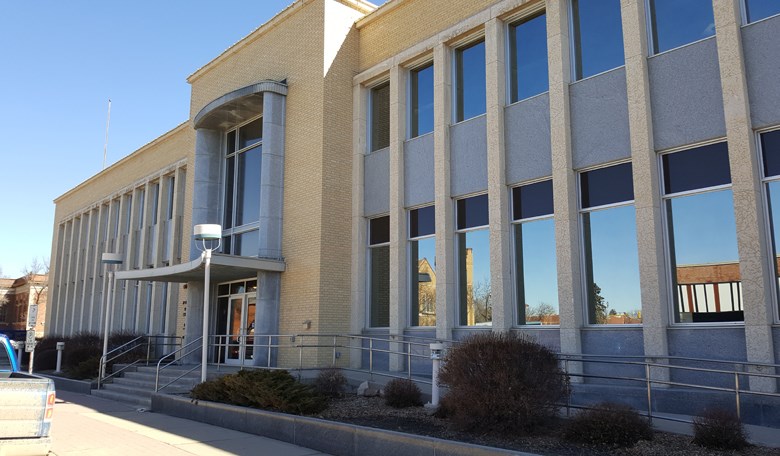The latest Saskatchewan budget looks better than the 2017 version from the perspective of the City of Yorkton but then again last year’s budget was one of the harshest in terms of municipal funding suggested Yorkton Mayor at a media conference Wednesday.
The provincial budget made it clear that payments in lieu of revenue agreements with cities across Saskatchewan are a thing of the past, and this means Yorkton will be losing some $1 million in annual revenue.
Yorkton Mayor Bob Maloney suggested there are winners and losers in this budget and said Yorkton again is among the losers, as was the case in 2017.
The losses relate directly to The Province breaking two legal, long standing agreements with Yorkton and most other cities across Saskatchewan. The agreements that had been in place for more than 50 years, compensated for loss of revenue to cities when local power and energy companies were absorbed into SaskPower and SaskEnergy in the 1940’s and 50’s.
Maloney said the agreements were not signed without both sides seeing benefits.
“It must have had value for both sides,” he said, adding if the then Yorkton Mayor Bill Fichtner were alive today “he would be an unhappy man,” seeing the deals broken by the province.
The agreements stipulated that the affected cities were to receive five per cent of utility revenue generated in each community in perpetuity. Swift Current, a city similar in size to Yorkton, opted to maintain their own power generation ability, generating more than $4 Million in revenue annually, to support their tax base. Prior to cancellation of the Payments in Lieu Agreements, Yorkton received $1.7 million through the agreements to fund City operations.
Last year after considerable discussion, the Province agreed to cap cuts to the Payments in Lieu Program for Yorkton at 30 per cent, which resulted in a loss of $1,000,000 rather than $1,700,000.
The cap is gone, said Maloney.
Maloney did note the replacement of the five per cent SaskEnergy revenues on an ongoing basis this year is appreciated (some $500,000), as is the Province’s commitment to ensure that no urban municipality is worse off than in 2016.
However in the case of Yorkton the province has had to backfill an additional $200,000, which Maloney pointed out, may not be there in 2019.
“There’s no guarantee beyond this year,” he said.
Maloney said while revenues from the province from the latest budget will stay neutral with last year, he said the way the money is being allocated is far from a simple agreement that used to exist.
“It’s a convoluted process,” he said.
And the situation still leaves Yorkton with a budget shortfall of $1 Million from what was received annually under the former SaskPower and SaskEnergy Agreements, explained Maloney. He suggested it would take decades of growth to be where the city was in 2017 in terms of funding.
“We want to be sure residents know exactly what tearing up those agreements means to Yorkton,” he said. Yorkton was harder hit than most Cities due to the large industrial sector versus residential population, and the substantial revenue those agreements generated.
In a release circulated at the event it noted the Payments in Lieu of Revenue Agreements provided 17 per cent of the City of Yorkton budget in the 2015 annual budget for operations, infrastructure replacement and capital projects.
“Tearing up those agreements means some necessary and planned for infrastructure renewal will need to be put on the backburner for years to come,” said the Mayor in the release.
“This downloading is frustrating,” he added at the conference.
But at least for 2018 the money remains the same from the province.
“We’ll be as good as we were last year,” said Maloney. That means the operating and capital budgets approved earlier this year by Yorkton Council will not need to be reopened and adjusted, said Maloney.
��
Maloney did credit Premier Moe for consulting with cities prior to the budget release, and that process of consultation will be ongoing as the province has served notice it wants to reopen discussion around transfer payments to municipalities.
That leaves municipalities wondering what the revenue sharing program will look like down the road, especially since the existing program has been a good one, he said.
“We feel it has been a very valuable program,” said Maloney, adding reopening negotiation is a concern because it creates more uncertainty around revenues.




